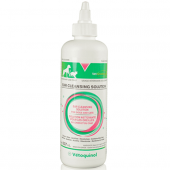Once you’ve decided to adopt a pet, the next decision is a big one: should you rescue an abandoned animal from a shelter, or take home a puppy or kitten from a breeder? There’s no right or wrong answer: each option presents unique benefits and challenges. Here are some observations to help you come to a decision.
Adopting a pet from a shelter or the SPCA
Benefits
According to the most recent Canadian Animal Shelter Statistics Report, over 106,000 pets were taken in by participating shelters in 2019. Sadly, 10% of surrendered dogs and 14% of cats needed to be euthanized. By adopting a pet from a shelter, you’re not only providing a home to an animal, but also opening up a spot for another one to receive the care they need.
In addition to stray animals left to fend for themselves (making up 42% of rescued dogs and 50% of rescued cats), many pets were removed from abusive homes. By providing a loving, caring environment, you are giving them a second chance at life.
Finally, adopting from a shelter can help you save some money. Shelter cats and dogs receive vaccines and medical care from staff veterinarians, and are usually already spayed or neutered. Because shelter operations rely on donations and government support, their fees are meant to cover the cost of the animal’s care—not make a profit.
Challenges
While purebred animals are found in shelters, you may not find exactly the breed you set your heart on. A mixed breed puppy may also grow up to become a very different dog than what you expected. Finally, if a rescued animal’s history is unknown, they may react unpredictably when encountering triggers of past trauma.
Adopting a pet from a breeder
Benefits
If you’ve always dreamed of owning a fluffy Persian cat or having a greyhound as a running partner, dealing with a reputable breeder is a reliable way of getting exactly what you want.
Specialized breeders know their animals very well and can provide expert advice for training and care. They also know your pet’s medical history, and may even include a health guarantee in their contract.
Challenges
The luxury of choice comes with a price. Popular purebreds can sell for a few thousand dollars, with some specialty dog breeds reaching five digits. Many purebreds also have genetic health issues (such as Cocker Spaniels’ floppy ears being prone to infections), requiring additional treatments and medication.
Beware of puppy mills and kitten mills. Before buying from a breeder, make sure their business is legitimate and meets Canada’s animal welfare requirements. Visit the breeder in person so you can verify for yourself that the animals are kept in humane conditions. Dogs and cats should be living in clean and safe housing with plenty of space to move around, and look healthy and happy overall.
Ethical breeders will also screen homes to make sure their animals will be welcomed into a suitable environment. Be prepared to answer many questions and not simply “shop” for a pet.






